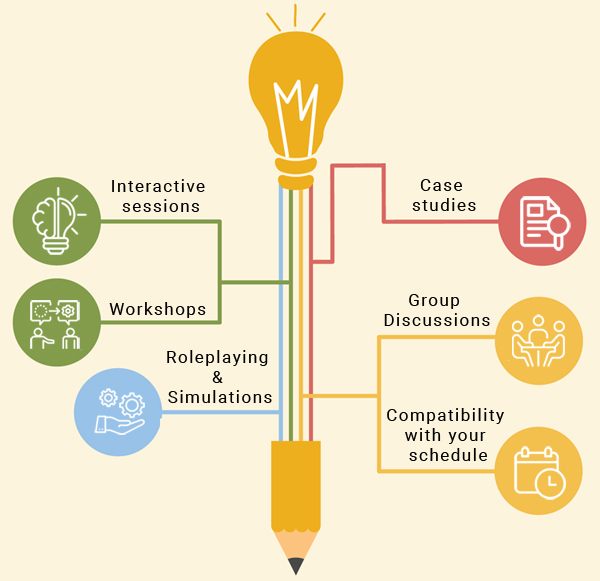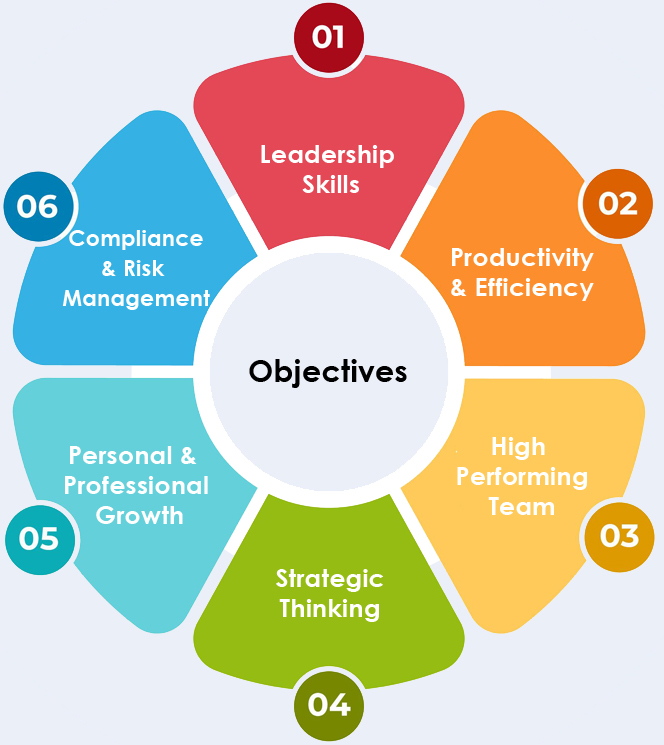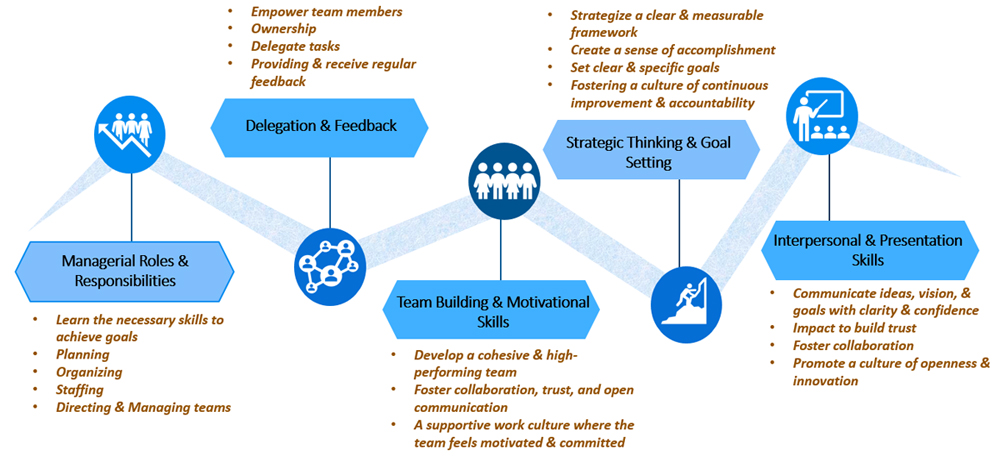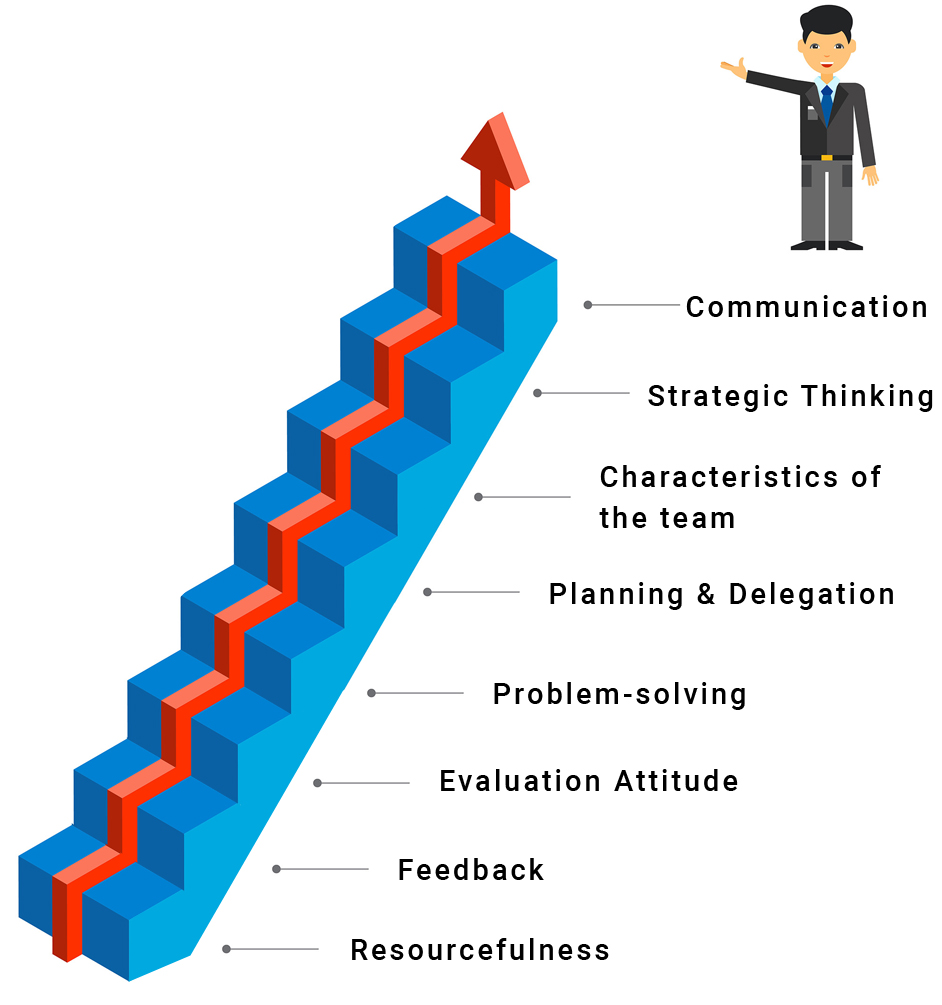


Interactive sessions: Offering courses and modules that cover specific skills or topics.

Workshops:Workshops allow hands-on learning and can be used to teach various skills, such as communication, problem-solving, and leadership.

Roleplaying & Simulations: These techniques simulate real-life scenarios that students may encounter in the corporate world, allowing them to practice their skills.

Case studies: Case-based learning allows participants to dive deep into real-world challenges faced by managers from various industries and offers the opportunity to learn from their experiences.

Group Discussions : Group discussions encourage critical thinking as students analyze information, evaluate different perspectives, and form opinions. This helps participants to prepare for the corporate world by practicing teamwork skills and developing critical thinking abilities.

Compatibility with your schedule:As a working professional, your time is likely limited. Choosing an online program can offer the flexibility needed to develop your skills while meeting your current obligations.



Leadership Skills: Develop leadership skills, such as effective communication, delegation, motivation, and decision-making

Productivity & Efficiency: Equip managers with the tools and techniques to manage their time effectively, prioritize tasks, and perform under pressure

High-Performing Teams: Skills such as planning, implementation, and conflict resolution helps managers to nurture strong and productive relationships with internal and external stakeholders

Strategic Thinking: Skills such as problem-solving, critical thinking, and decision-making help managers think more strategically and make decisions aligned with the organization's goals and objectives

Personal & Professional Growth: Provides opportunities to Managers for self-reflection, feedback, and goal setting

Compliance & Risk Management: Help managers understand their legal and ethical obligations, as well as how to identify and manage risks



Communication: Effective & accurate exchange of information. Getting it, retrieving it, & giving it.
Strategic Thinking: Learn to gather and analyze information from various sources, including competitors, customers, industry trends, and internal data and identify the actions required to achieve desired outcomes.
Characteristics of the team: Understand the team’s skills, attitudes, history, working methods, & requirements.
Planning & Delegation: Analyze, Design, Develop, Implement, & Evaluate.
Problem-solving: Learn the tools to identify the nature and alternate methods to resolve the issue.
Evaluation Attitude: Imbibe an attitude to evaluate self & team’s processes & outcomes to strive for higher goals.
Feedback: Train to ask, receive, and give feedback for continuous improvement.
Resourcefulness: Think outside the box & develop innovative ideas to overcome obstacles.
